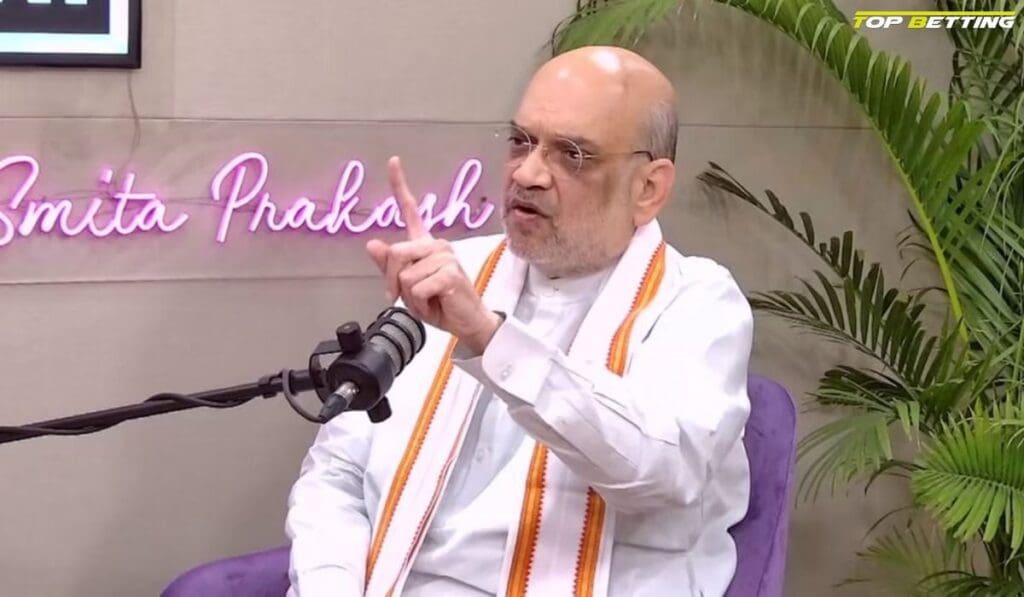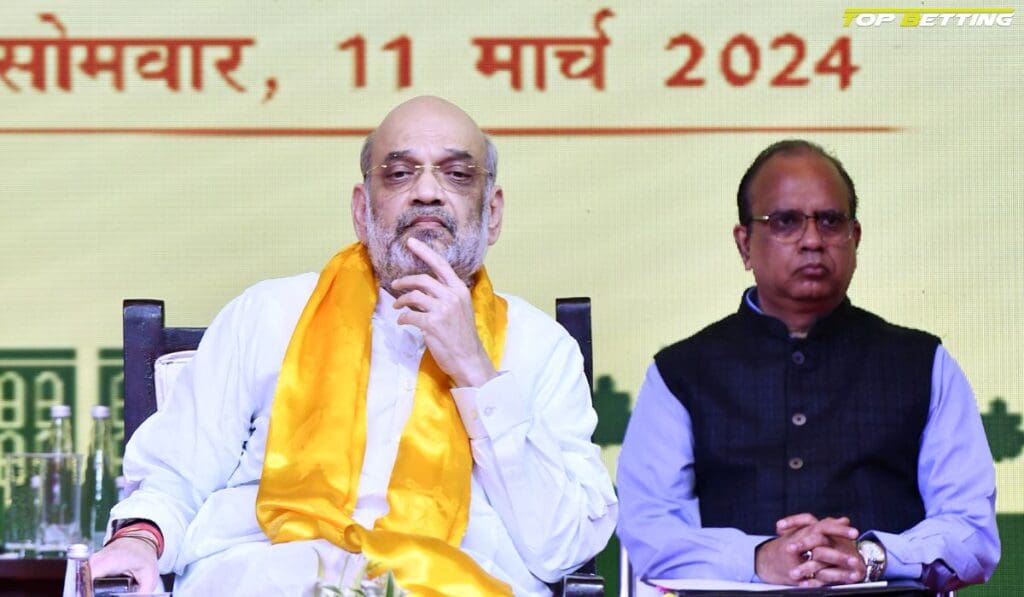
Amit Shah attacks foreign media | Drafting “anti-Muslim
Amit Shah, the union home minister, defended India’s citizenship and religious rules in the face of growing criticism from international media.
Union Home Minister Amit Shah has retaliated against foreign media outlets that have questioned the controversial policies that the Narendra Modi government has implemented, especially those that deal with citizenship and religion.
Perceived as “anti-Muslim,” foreign media sources have been closely examining India’s prohibition on the Islamic practice of triple talaq, the repeal of Article 370 of the Indian Constitution, and the Citizenship Amendment Act.
Shah responded, “Ask foreign media, do they have Triple Talaq, Muslim Personal law, provisions like Article 370 in their country,” in response to the observation in an interview with ANI.
The Muslim Women (Protection of Rights on Marriage) Act, 2019, which was passed by the Indian Parliament, rendered quick triple talaq illegal and subject to legal penalties. Critics were concerned that the provision that might result in a three-year prison sentence for pronouncing triple talaq could be abused to resolve family disagreements or personal grudges. Some argued that rather than using criminal laws to handle these issues, personal laws and religious traditions should be used.
The Indian government, led by Prime Minister Narendra Modi and Home Minister Amit Shah, declared on August 5, 2019, that Article 370 had been revoked by Presidential Order. As a result, Jammu and Kashmir, the only Muslim-majority state in India, lost its unique status. Additionally, the government divided the state into Jammu & Kashmir and Ladakh, two distinct Union Territories.
The repeal of Article 370 was a very controversial decision that elicited conflicting responses on a national and international level. The decision’s implementation has drawn criticism from opposition parties and critics who claim that the people of Jammu and Kashmir were not properly consulted or given their approval.
Protests across the nation were large in response to the Citizenship Amendment Act of 2019, which was criticized for being discriminatory.
For undocumented immigrants from Afghanistan, Bangladesh, and Pakistan who belong to particular religious sects, the CAA offers a route to Indian citizenship. These communities, which have experienced discrimination in these nations because of their religious identity, include Christians, Sikhs, Buddhists, Jains, Parsis, and Hindus.
Opponents of the CAA contend that the law violates the secular values contained in the Indian Constitution by specifically barring Muslims from its jurisdiction and connecting citizenship to religious identity.
In the face of mounting criticism from the foreign media, Union Home Minister Amit Shah has staunchly defended India’s laws on religion and citizenship. Shah has hit back at foreign media outlets that have been scrutinizing India’s ban on the triple talaq practice in Islam, the abrogation of Article 370 of the Indian Constitution, and the Citizenship Amendment Act. These laws have been perceived by the foreign media as “anti-Muslim.” In this article, we will delve into the background of these laws and examine Shah’s defense of them.

Citizenship Amendment Act (CAA)
The Citizenship Amendment Act, 2019, is yet another law that has triggered massive protests across the country and drawn criticism from the foreign media. The CAA provides a pathway to Indian citizenship for undocumented immigrants belonging to specific religious communities from Afghanistan, Bangladesh, and Pakistan. These communities include Hindus, Sikhs, Buddhists, Jains, Parsis, and Christians who have faced persecution in these countries due to their religious identity.
Critics of the CAA argue that by explicitly excluding Muslims from its purview and linking citizenship to religious identity, the law undermines the secular principles enshrined in the Indian Constitution. They view it as discriminatory and an assault on the country’s pluralistic ethos.
Amit Shah’s Response to the Critics
In response to the criticism, Amit Shah defended India’s laws on religion and citizenship. When questioned about the foreign media’s portrayal of these laws as “anti-Muslim,” Shah retorted by asking whether these media outlets have similar provisions in their own countries. He emphasized the need to understand the context and rationale behind these laws, which are aimed at addressing specific socio-cultural and historical challenges faced by India.
Shah’s defense of these laws highlights the government’s perspective that these measures are not targeted against any particular religious community but are meant to address specific issues related to gender equality, national security, and the protection of persecuted religious minorities.

Conclusion
Union Home Minister Amit Shah’s defense of India’s laws on religion and citizenship comes in the face of mounting criticism from the foreign media. By questioning the foreign media about their own countries’ provisions, Shah aims to shed light on the cultural and legal context in which these laws operate. While these laws have attracted controversy and sparked protests, the government maintains that they are necessary to address societal challenges and protect the rights of marginalized communities. The ongoing debate surrounding these laws reflects the complex interplay between religious freedom, equality, and national security in India.











